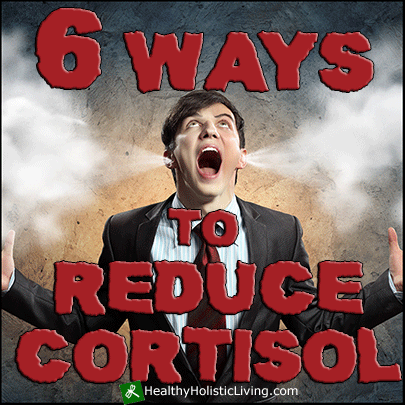
Cortisol can be a killer or at least the inflammation that is a result of excessive cortisol in your body. Understanding what cortisol is and how it impacts the body is essential in todays modern world. Lets just take a quick look at what Cortisol is, and what it does.
What is Cortisol?
Cortisol is a natural steroidal hormone. Its official name is hydrocortisone, but thats far too long a handle to even say, let alone write; so lets stick with its more casual name. Cortisol is a naturally occurring steroidal hormone. Its produced by our adrenal glands. These are the small glands that are attached to each of our kidneys. First of all, just to put the record straight, Cortisol is a chemical that we cannot do without. Its essential for life. Well go into the ins and outs of what it actually does in a moment, but for now, suffice it to say its a little like the mother-in-law: acceptable in small amounts, but when overexposed not good for your health.
The Benefits of Having the Right Levels of Cortisol
When present at the right levels in our bloodstreams the effects of Cortisol are to normalise blood pressure, and to support our immune systems. In addition it helps us to manage our levels of stress; boost the level of sugar in the bloodstream; regulate blood sugar, and reduce inflammation. In other words, without Cortisol wed all be hypertensive, stressed out, red faced, diabetic, sickies. So, long live Cortisol but only in the right amounts!
The Effects of Cortisol when Present in Excess
Just like mummy says, you can have too much of a good thing, and thats certainly the case with Cortisol. When present in excess in our bloodstreams, (a condition known as hypercortisolism), the surfeit of Cortisol can produce:
- Heightened levels of stress
- Hypertension (high blood pressure)
- Skin infections
- Musculoskeletal problems (osteoporosis, muscle weakness, and chronic backache
- Neurological disorders (depression, anxiety, and irritability)
- Problems with sleeping
- Increased blood sugar levels
- Weight gain
Some of the above mentioned conditions such as hypertension and weight gain can also have more serious repercussions in terms of the increased risk of heart disease and stroke.
How to Reduce Cortisol Levels
As we often find out in our journey through life, our mothers turn out to be right in so many things that they said, and certainly the good effects of Cortisol are indeed outweighed when we have too much of it. So its time to take a look at the ways that we can reduce Cortisol levels in our bloodstreams.
In Times of Stress
First of all, bear in mind that Cortisol is a steroidal hormone that our bodies produce in times of stress. It is part of our bodies preparing themselves for what is known as the fight or flee condition. In this scenario the effects of Cortisol are to help us to tap into our energy reserves, and also to help us to be prepared to fight off infection.
Stress Triggers Cortisol Production
Stress also stimulates our bodys production of Cortisol. The problem is of course that many of us today live with stress as part of our daily lives. The result is that our bodies keep on manufacturing Cortisol and the levels in our bloodstream become too high.
Tackling the Stress that Creates Cortisol Over-production
The best way to reduce Cortisol is to tackle stress; and the best way of tackling stress it to take a holistic approach by changing the way that you view lifes priorities, and the way you actually live out your life. Focussing on reducing stress induced Cortisol production, here are a few tips you can try.
1. Music Soothes the Savage Beast
Playing music when stressed out has a surprisingly significant effect. No head-banging stuff though something soothe and calming.
2. Think Belly Button
We joke about contemplating our navels, but in all seriousness, meditation is an excellent way of chilling out.
3. Get Plenty of Shut-eye
Theres nothing more calming and relaxing than a good nights sleep. Research has shown that getting 8 hours instead of only 6 hours sleep can reduce the bodys Cortisol production by as much as 50%.
4. Reduce or Eliminate Caffeine
Caffeine is a stimulant. Just like your bodys fight or flee response it stimulates your body, so if stress is a problem its time to kick the coffee habit. Try some nice herbal tea instead.
5. Exercise Regularly
It is known that regular exercise helps to stimulate the brains manufacture of serotonin and dopamine the chemicals that reduce anxiety and depression.
6. Use Natural Herbal Products
There are several wholly natural herbs that can help to reduce stress too. These include:
- Magnolia Bark (from ancient Chinese medicine)
- Theanine (found in green tea)
- Epimedium (Horny Goat Weed) ancient Chinese medicine strikes again
- Phytosterols (found in nuts and seeds)
The only way of reducing the adverse effects of Cortisol is to reduce the levels of Cortisol itself. The 6 natural methods shown above will not only work effectively, they will also contribute to a more holistic approach to life.
